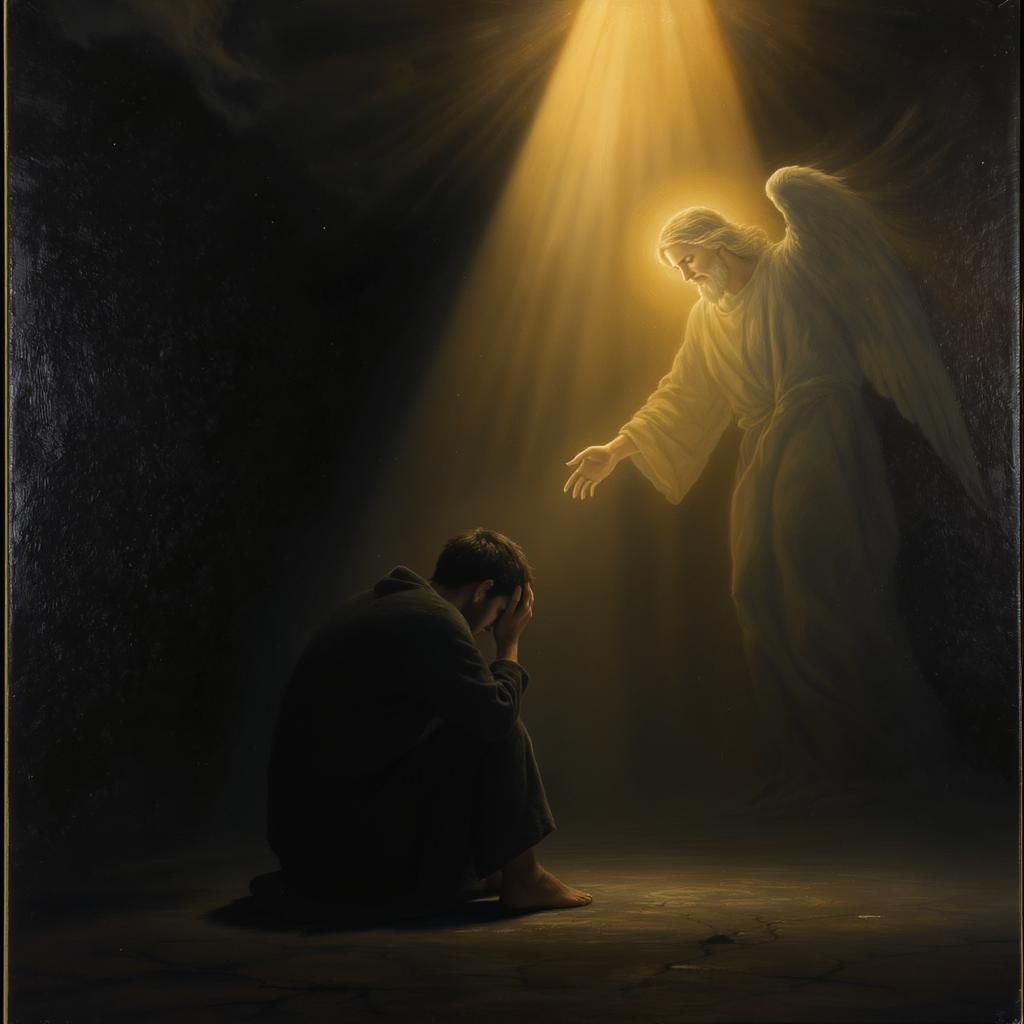
In life’s journey, we all encounter moments of profound darkness—periods when pain seems unbearable, hope feels distant, and questions outnumber answers. These darkest hours come in many forms: the devastating diagnosis, the unexpected loss, the broken relationship, or the crushing failure. Yet throughout human history and across countless personal testimonies, there emerges a consistent theme: it is often in these very moments of deepest darkness that divine presence becomes most palpable.
The Paradox of Divine Encounter
There’s a striking paradox in spiritual experience across traditions: God often seems most accessible not in our moments of triumph and clarity, but in our experiences of suffering and confusion. When everything is stripped away—our plans, our certainties, our illusions of control—something profound happens. We become available in a new way.
As Holocaust survivor and psychiatrist Viktor Frankl observed, “When we are no longer able to change a situation, we are challenged to change ourselves.” This transformation often creates space for divine encounter.
The Language of Darkness in Sacred Texts
Sacred texts across traditions acknowledge this reality. The Psalmist cries, “Out of the depths I cry to you, O Lord” (Psalm 130:1). Job encounters God not in his prosperity but in his suffering. Jesus experiences divine abandonment on the cross before resurrection. These narratives suggest that darkness is not evidence of God’s absence but often the prelude to profound presence.
The darkness doesn’t disappear in these stories—rather, it becomes the setting where divine light takes on new significance. As theologian Barbara Brown Taylor writes, “Darkness is not dark to God; the night is as bright as the day.”
How God Meets Us
When God meets us in darkness, the encounter rarely follows our expectations. Instead of immediate rescue, we often experience:
- Sustaining presence: The quiet assurance that we are not alone in our suffering
- Unexpected comfort: Often through the compassion of others who become divine hands and feet
- New perspective: Insights that could only emerge through the crucible of difficulty
- Strength beyond our own: Resources that appear precisely when our own strength fails
These encounters rarely eliminate suffering immediately, but they transform our relationship to it. The darkness doesn’t disappear, but it no longer has the final word.
The Community of the Broken-Hearted
Perhaps most powerfully, when God meets us in darkness, we often find ourselves joined to a community of fellow travelers—others who have walked through their own valleys. There is a recognition that happens between those who have encountered God in darkness that creates profound connection.
This is why those who have suffered often become the most effective comforters. Having been met by God in their own darkness, they can sit authentically with others in theirs. As Paul writes, we can “comfort those in any trouble with the comfort we ourselves receive” (2 Corinthians 1:4).
Finding Hope in Darkness
If you find yourself in a season of darkness, remember that you stand in a long tradition of those who have discovered divine presence precisely where they least expected it. Your questions, doubts, and pain do not disqualify you from encounter—they may be the very doorway through which deeper connection comes.
The darkness may not lift immediately. The answers may not come in the form you expect. But across time and tradition, countless voices testify to this truth: we are often closest to divine reality not when we have everything figured out, but when we acknowledge how little we control.
In our darkest hours, when we have come to the end of ourselves, we often discover we are not at an ending at all, but at the threshold of a new beginning—one where divine light shines not around our darkness, but mysteriously and transformatively within it.


Leave a Reply